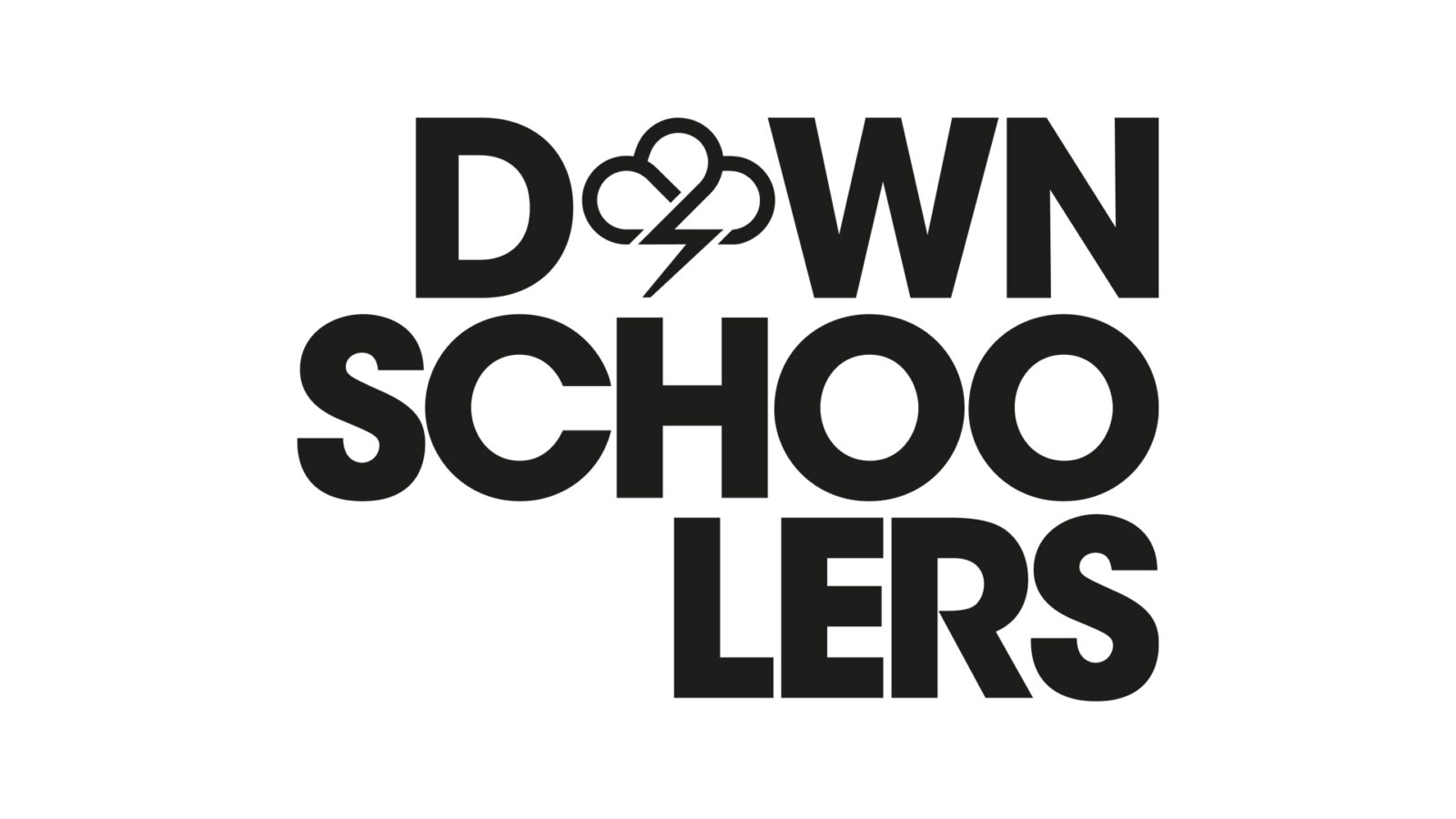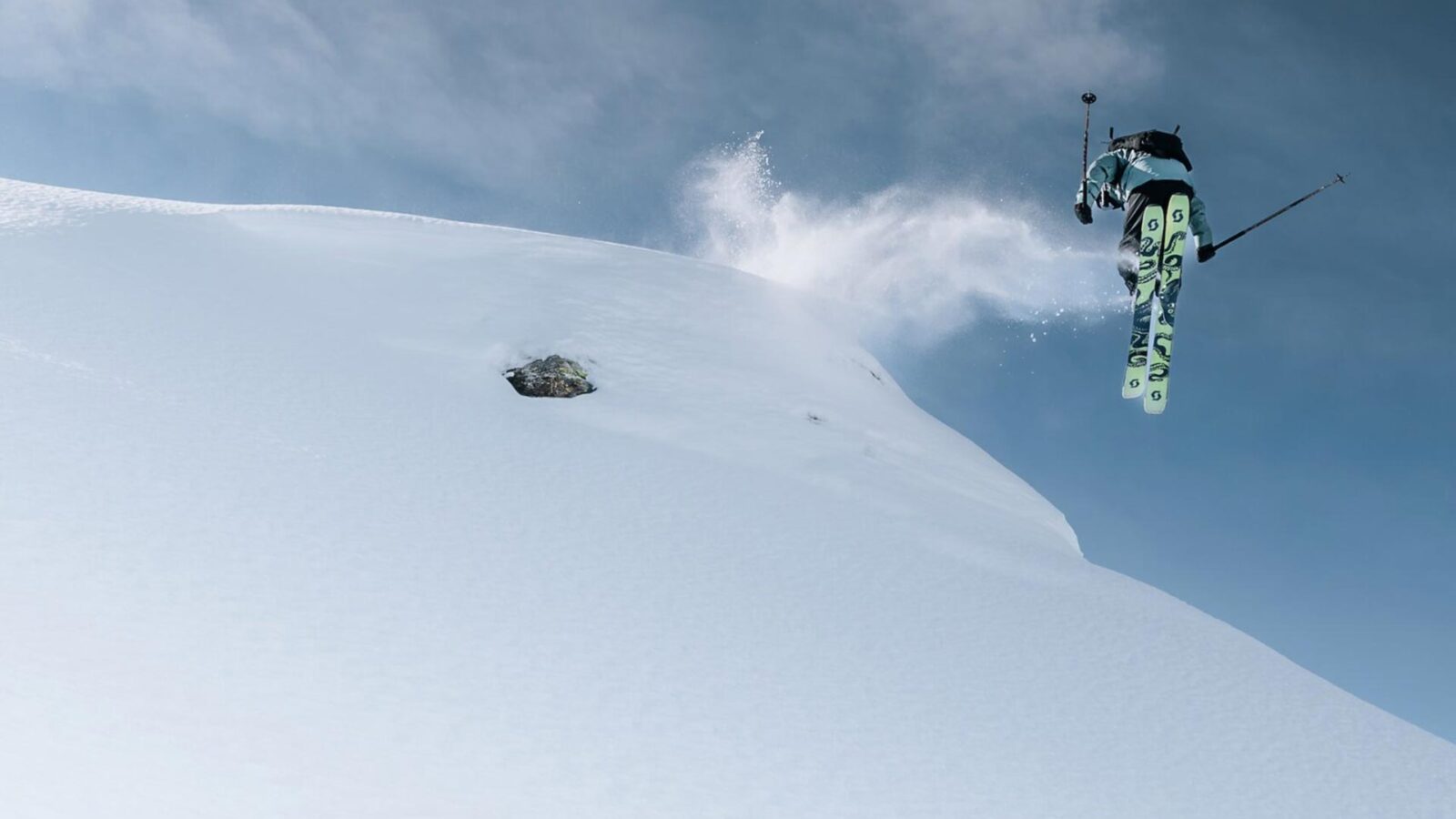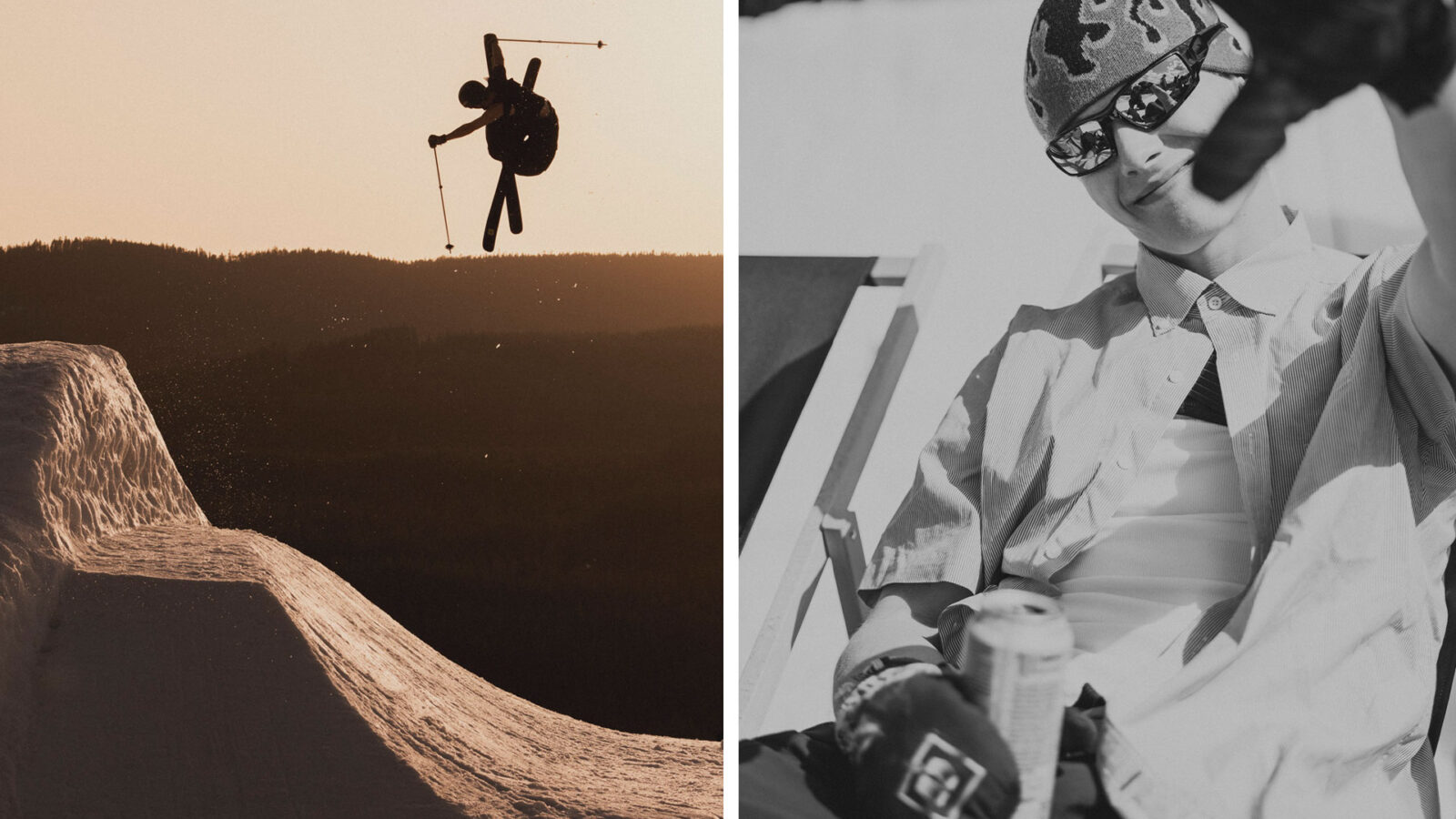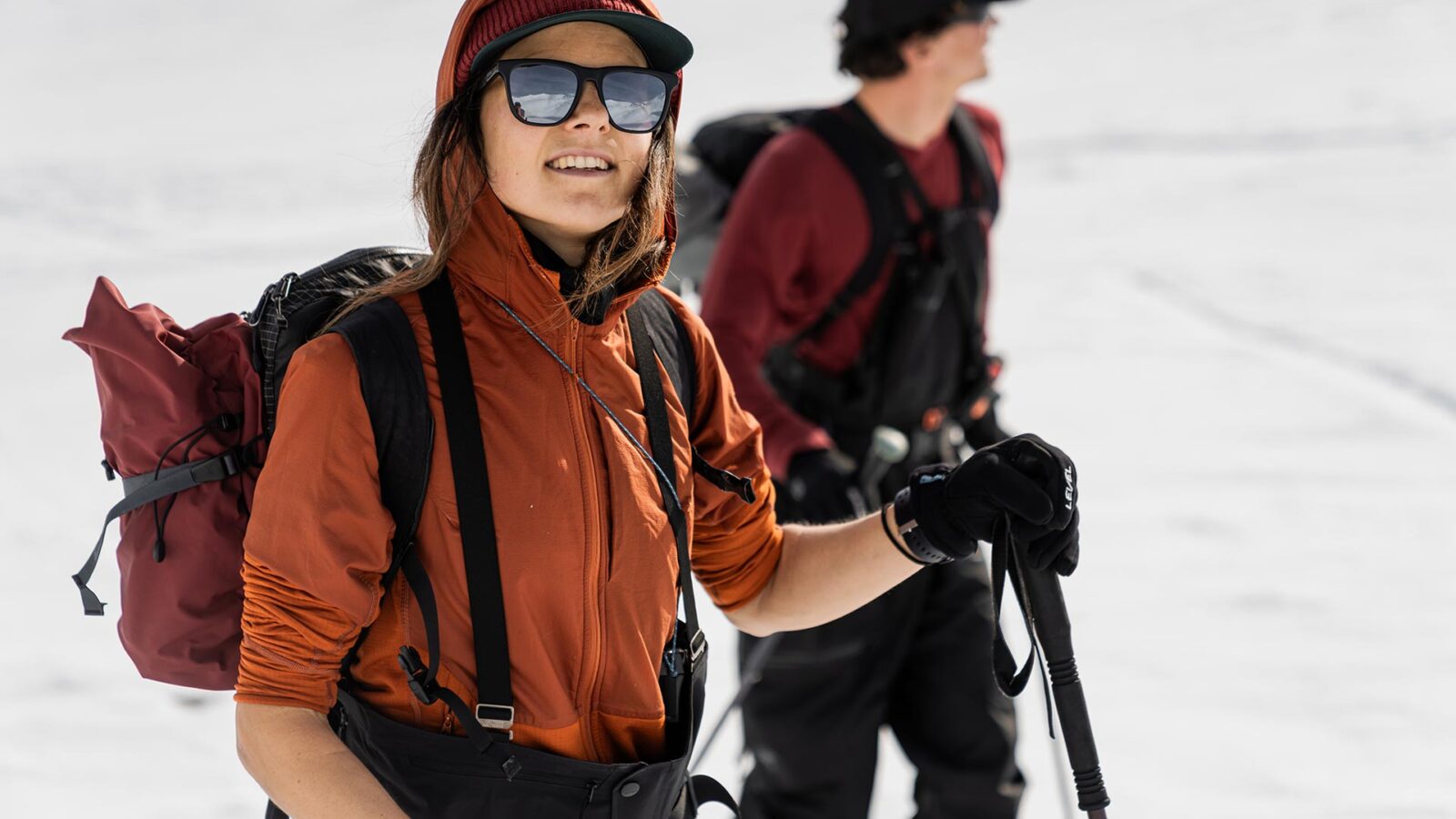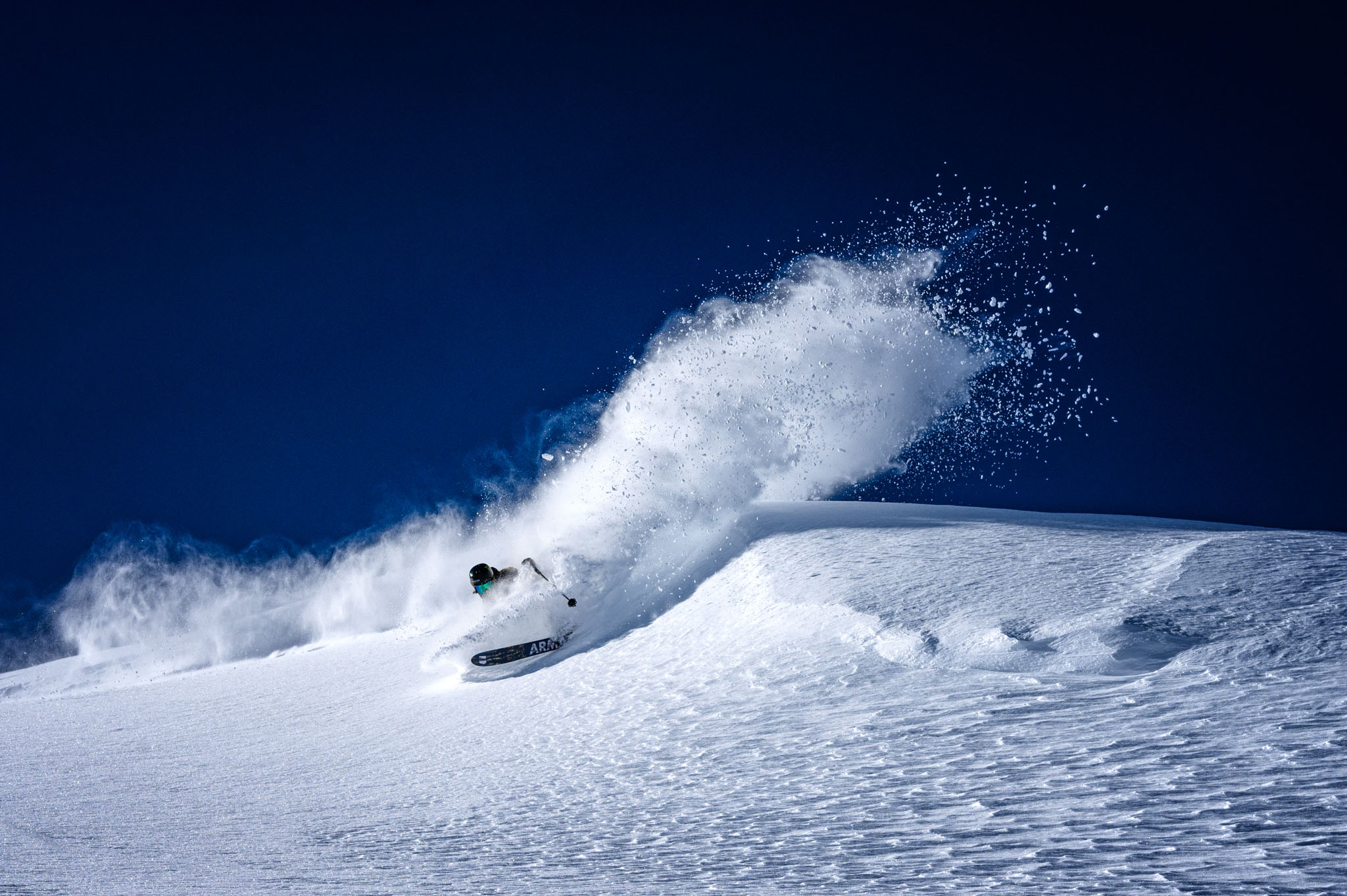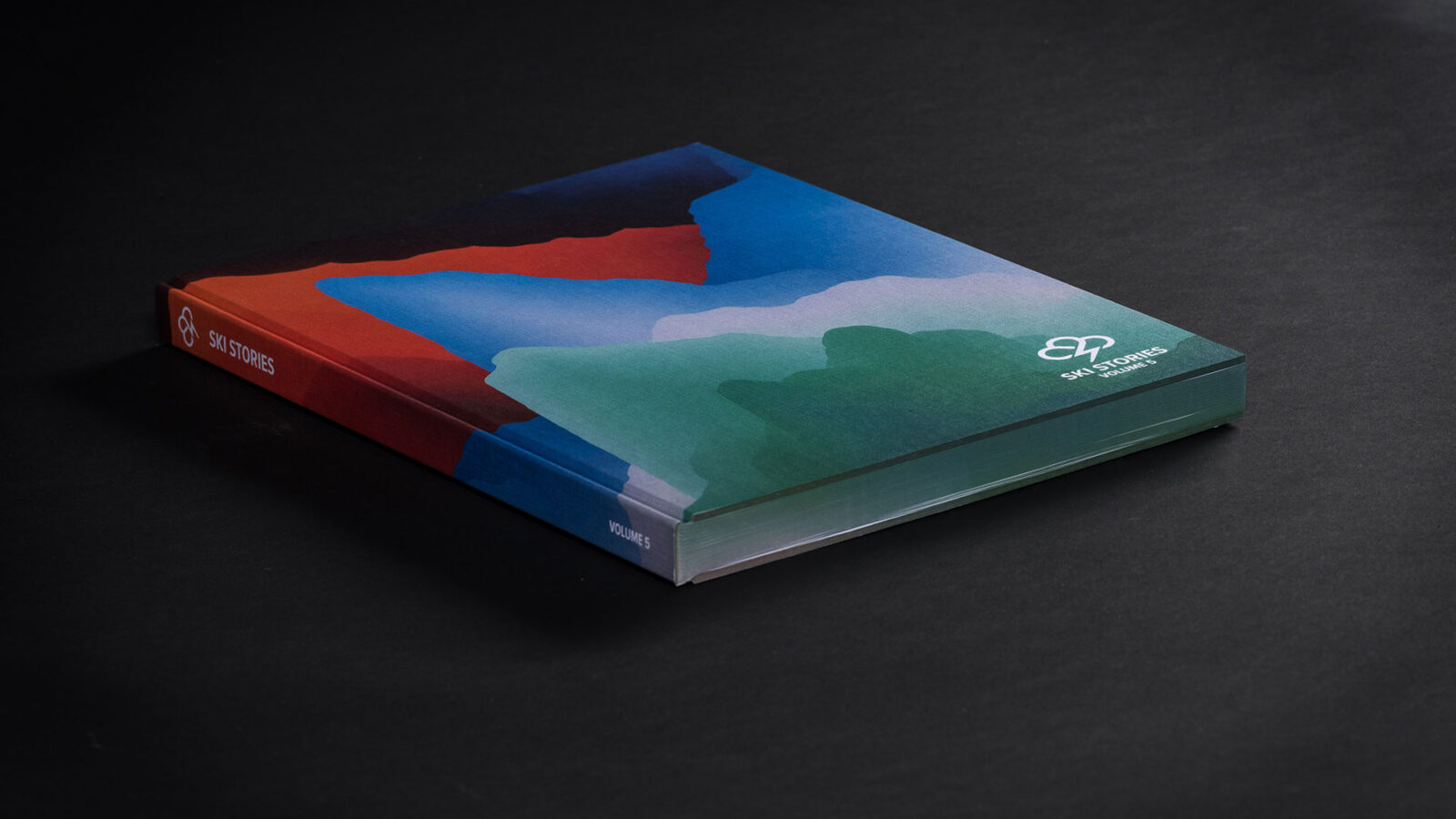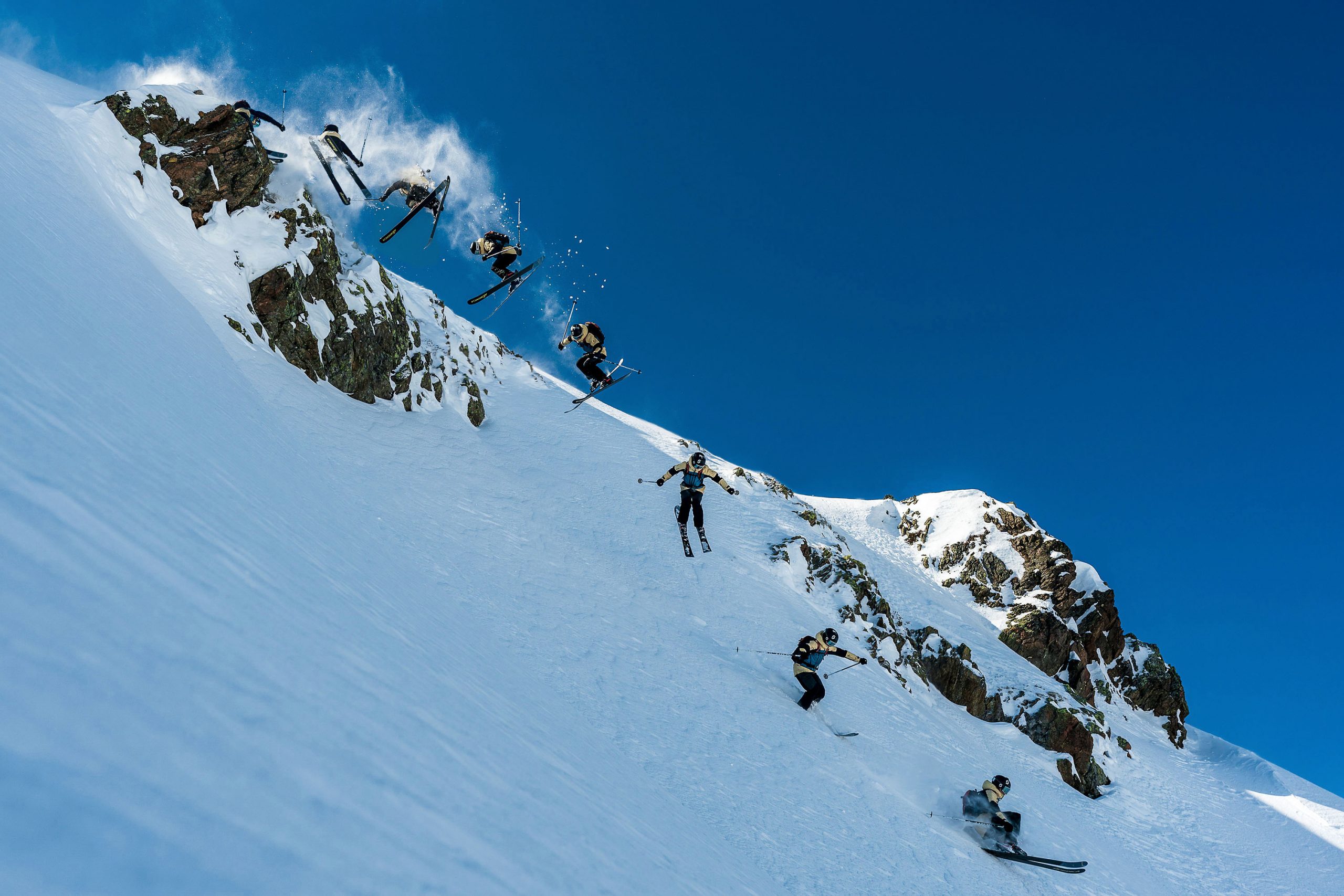
Stories
HighlightThe new generation
Valentin Rainer: Next Generation Freerider
A perfect example of the new crop of competitive freeriders, Valentin Rainer debuted on the Freeride World Tour this season. The young Austrian made his way to the elite circle with talent, hard work and a clear plan, as well as the Strong support of veteran freeride star Stefan Häusl. We met with both Valentin and Stefan at their home mountain in St. Anton am Arlberg to reflect on the way to the top.
Competitive freeriding has changed. Long dominated by experienced riders who honed their skills over years on the competition circuit, this year’s Freeride World Tour finals saw only one qualified skier above age 30: defending champion Kristofer Turdell. One of the young guns on the Freeride World Tour this year—who unfortunately didn't qualify for the finals—was Valentin Rainer. The 23-year-old Austrian is now trying to re-qualify for next year’s World Tour through the FWQ Finals in Europe. Ahead of the series’ final competition (happening today in Obergurgl) his chances are looking great.
An instrumental figure in Valentin’s rise is former FWT competitor and Austrian freeride legend Stefan Häusl. Having retired from competitive freeriding only a few years ago, nowadays the 45-year-old is coaching a developmental freeride team under the umbrella of the Ski Club Arlberg while still pursuing his own freeride projects. Unlike his protege, Stefan’s path to the FWT was quite different: He started rather late with professional freeriding, completing his first year on the World Tour in 2010 when he was already past 30 years old. Residing just outside of St. Anton with his family, Stefan splits his days on the mountain between coaching up-and-coming young freeride skiers and skiing for himself and his ongoing media projects.
Between his stint on the FWT and his campaign to requalify for the Tour via the FWQ finals, Valentin spent some time at home, which is not far away from the Arlberg near Landeck in Tyrol. I took the opportunity to meet with both Valentin and Stefan on the mountain in St. Anton, join them for a day of skiing and do an interview with both: about freeride skiing in general, and in particular about the shift towards younger athletes, professional teams and coaching in freeride skiing.
Interview & Photos: Klaus Polzer
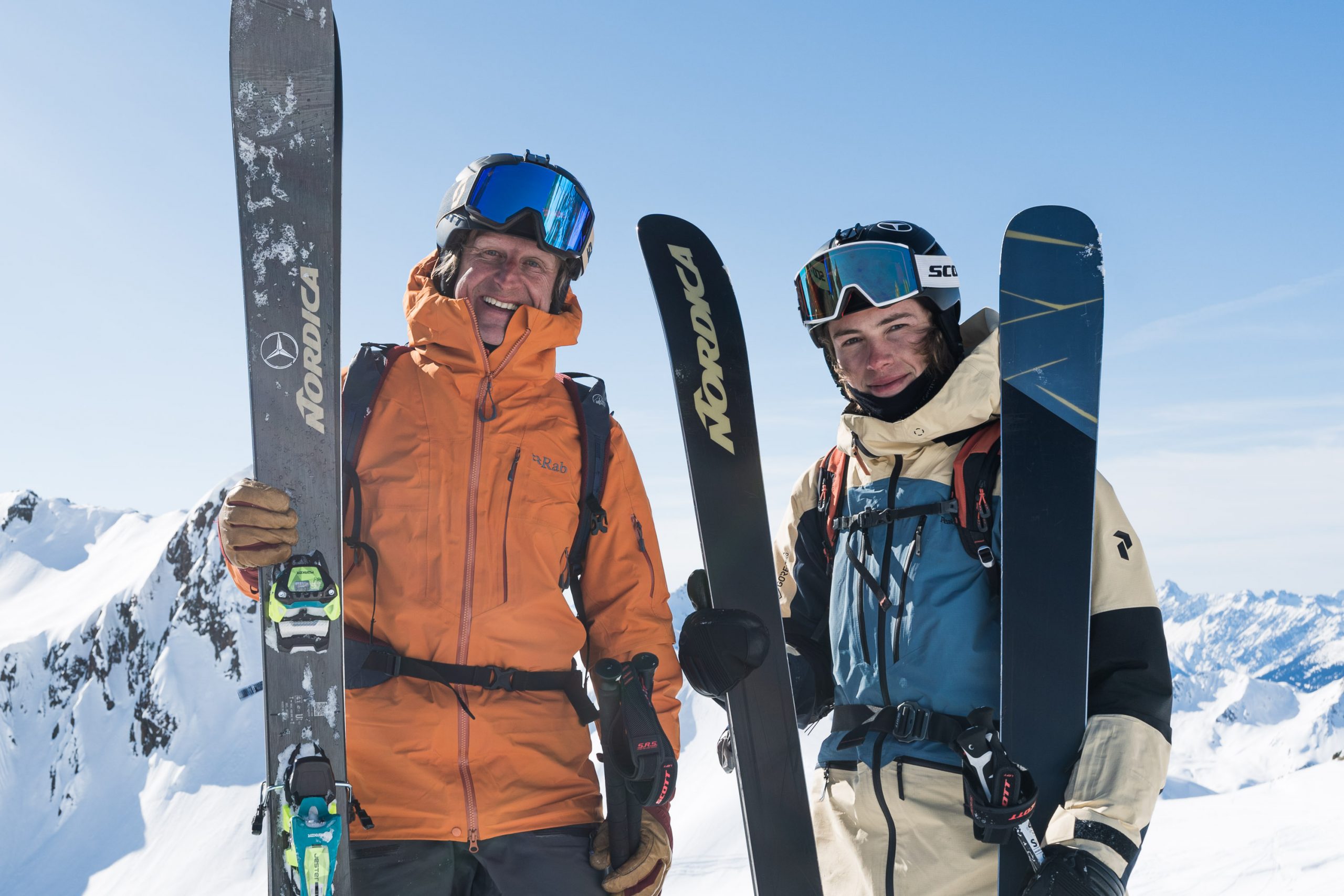
Former FWT competitor and Austrian freeride legend Stefan Häusl with his protégé, Valentin Rainer.
Downdays: Valentin, tell us how you came to freeride skiing in the first place.
Valentin Rainer: I started skiing in the classical Tyrolean way at the young age of 3 with my dad, and pretty soon did some alpine racing as a kid. It turned out that I was doing pretty good, so at some point the aim of one day competing in the Alpine World Cup appeared. It was an aim that I had, but that also my dad had, and so he did what he could to support me in the best way. Then in 2012 I broke my leg and missed a couple of months of training. That meant a break in my Alpine career. Before I had won quite a few races, but after the break I struggled to make it to the top again. That was also the time when you would need to make it from national to international level in order to keep competing in an Austrian ski team.
To be honest, I wasn’t that much into racing, so I wasn’t overly disappointed that I didn’t make it into the team, but I also didn’t want to quit skiing as a competitive sport completely. Then a friend told me about the Wild Face competition in Pitztal, which is a freeride comp that isn’t based on judging, but on time instead. Unfortunately, we couldn’t participate that year since you have to be 18 or above, but for the first time I became aware of the whole competitive freeride circuit and decided to give it a try at the 1-star qualifier event in Axamer Lizum. I instantly realized that this was what I wanted to do.
The problem, however, was that I didn’t really have people that I could go freeriding with. I met people at contests but nobody was from my area, and traveling is not that easy when you are still at school. So the next year, I still went skiing with my dad a lot and I competed at my first Freeride Junior Tour competition in Kappl which I managed to win. That opened up a new perspective. Then my dad, who happens to work in St. Anton, heard about a new freeride team that the Ski Club Arlberg was starting under the guidance of Stefan. I was actually a bit old for the concept, but since I had some results already and was really motivated, I was allowed to join the team and next summer we started with some serious training. That’s when my freeride career really started.
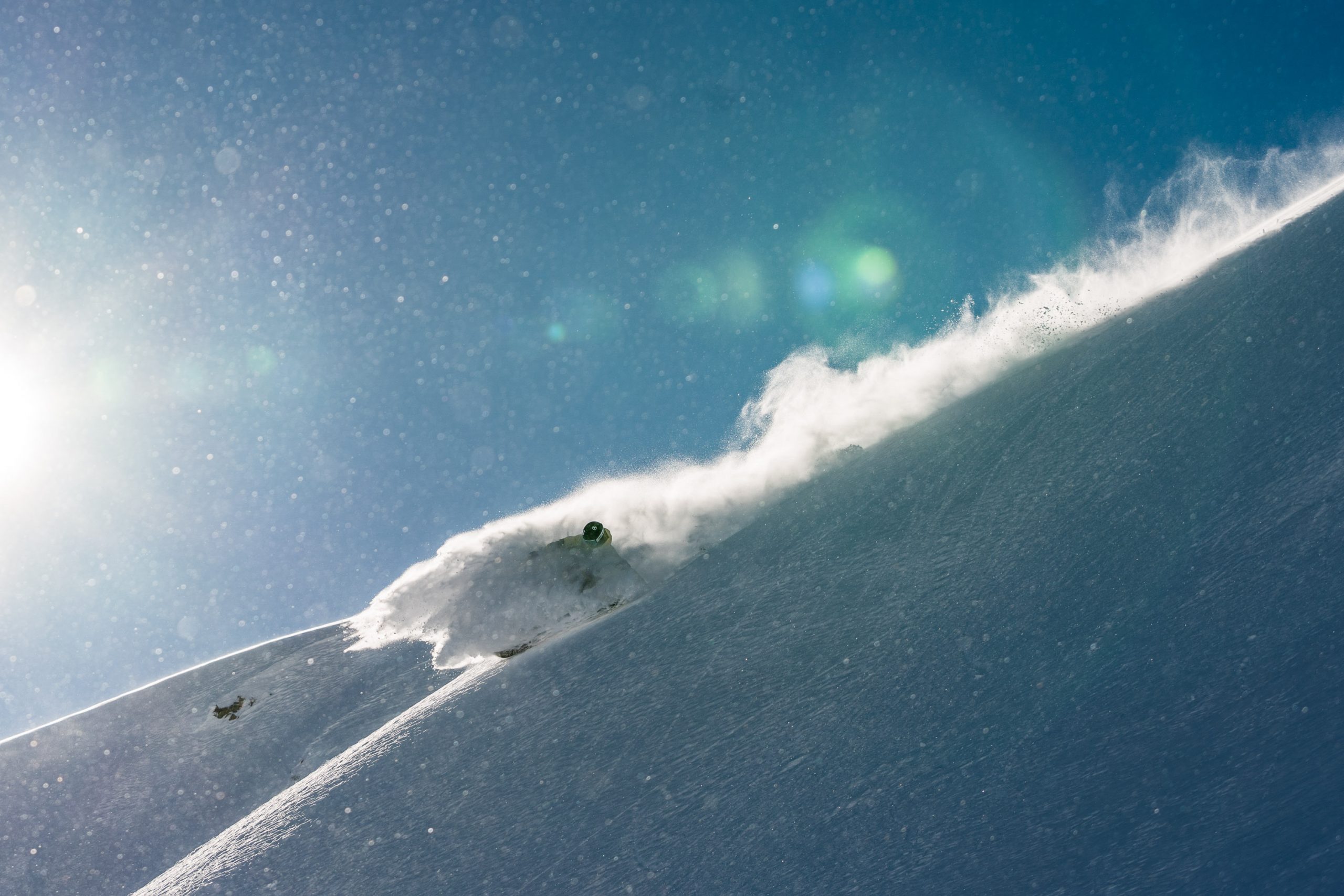
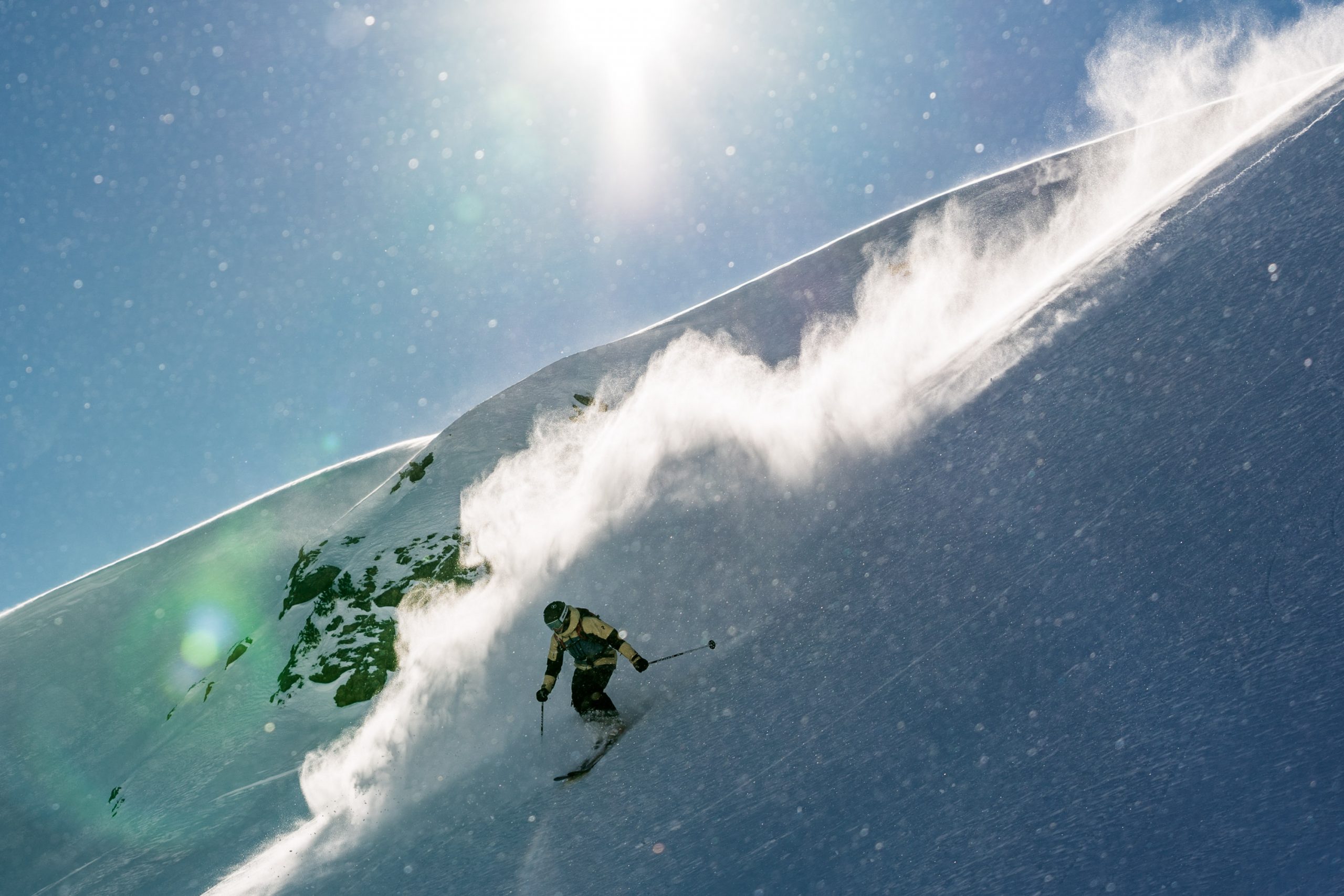
Valentin tosses a slash in some of St. Anton´s white gold.
DD: Stefan, how did you get the Ski Club Arlberg to start a freeride team?
Stefan Häusl: That was actually much easier than you would expect. I had originally moved to St. Anton before my freeride career to work as an instructor at the Austrian Ski Academy. Back then, that’s where my involvement with freeriding really started, because we did some filming for Austrian TV and I got to take part in the Powder 8 World Champs in Canada, which we happened to win. That was the starting point for real freeriding, which eventually took me to the FWT for several years. When my competitive career on the FWT finally came to an end, I was already doing the education to become a sports coach, and as part of that I had to develop a coaching concept for a sport of my choice. Obviously, I chose freeride skiing and I mapped out everything, from strength and trampoline training in summer to snow training in winter, including mental preparation for competitions and so on. I didn’t intend to start a team back then, but the Ski Club Arlberg asked me to go skiing with some interested kids and that turned out to be really nice. The club had started a freestyle program before, which was pretty successful, and the guy who was running the freestyle program told the club they should try to get me for a freeride program. So we had a few meetings and pretty quickly we got together and got the freeride team started.
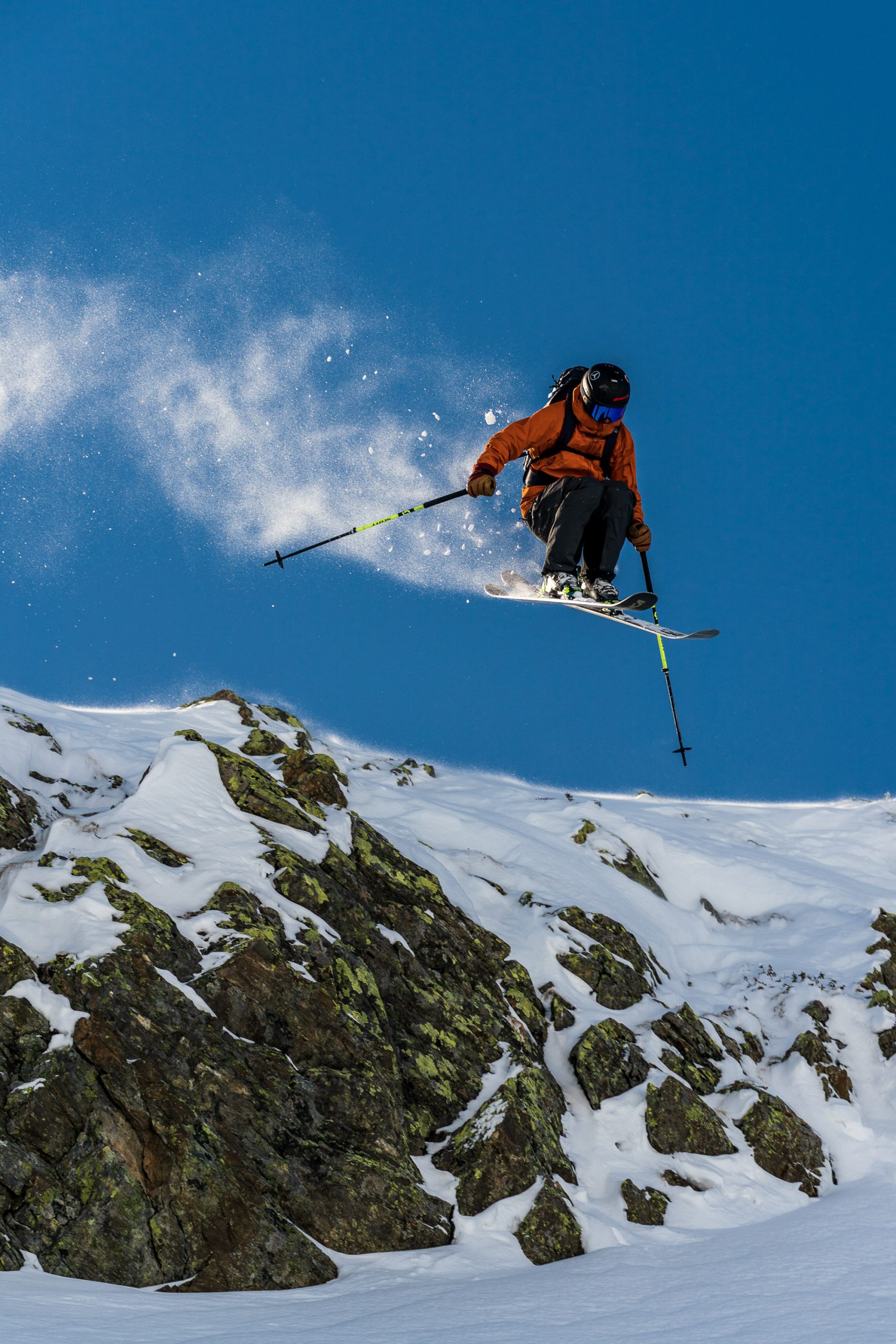
An respected old hand in the freeride scene, Stefan Häusl knows a thing or two about making an impact on the competition circuit—knowledge he´s now passing on to the next generation.
The sport is developing so quickly that it is more important than ever to be really fit and to practice tricks on the trampoline before trying them on snow and so on. If you don’t do this, the risk for injury is much too high.
DD: Was Valentin part of it from the beginning?
Stefan: Yes, he was part of it from the beginning. We had a meeting with all the parents of the interested kids and he was there with his dad. I think he was the only one who was not directly from the Arlberg area.
Valentin: I was also the only one who had already some experience with freeride comps and I was much older than all the others. At first I wasn’t sure if I was going to fit in, but it ended up working very well, and it was a huge step forward for me.
Stefan: Of course, Valentin was much further than the rest, but I think he still profited from the training and the team. He was also the first to make the next step. After the first year, he moved to Innsbruck to study and he also made the move from the juniors to the FWQ series. He was doing much more on his own, like going to contests and so on, but he was still part of the team. We worked together to plan his training and I tried to help with lines choices at contests. Even when I wasn’t onsite, Valentin would send me pictures of the faces, and I told him what I think would work as a contest line and what wouldn’t.
Valentin: When I moved to Innsbruck, a whole new world opened up because all of a sudden I met a lot of people who had the same interests in skiing as myself. I could go freeride everyday and improve my skiing and learn from more experienced riders.
Stefan: I would like to add, though, that when we started the program, I said from the beginning that if we do it, we have to do it the right way. So we did all that off-snow training and kept doing this over the years and Valentin has been really good at following that routine. It is really important to lay the foundations for competitive freeriding in the athletic ability of the kids. The sport is developing so quickly that it is more important than ever to be really fit and to practice tricks on the trampoline before trying them on snow and so on. If you don’t do this, the risk for injury is much too high.
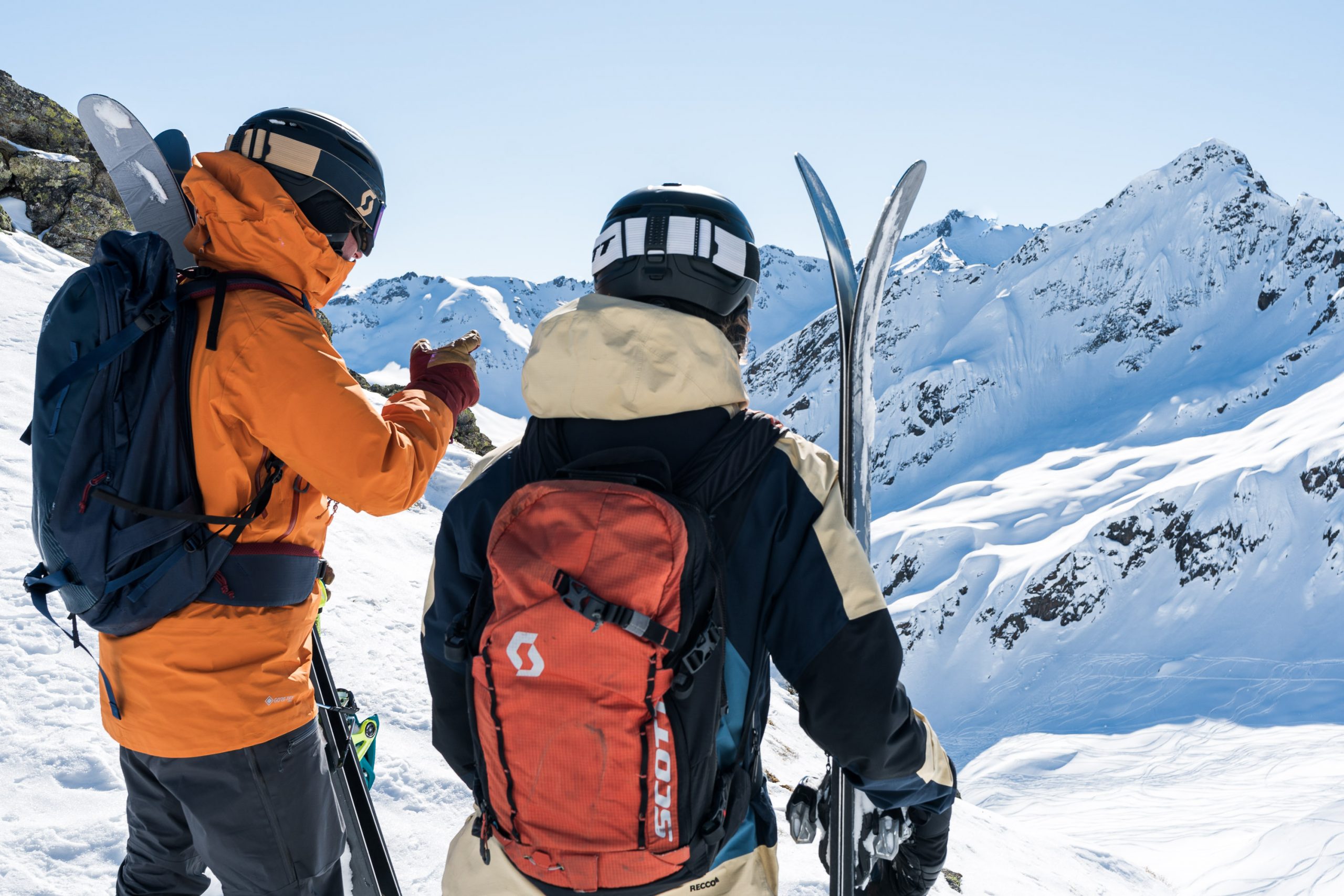
Stefan helps members of his team like Valentin with everything from preseason training to line choice at competitions. This is the new normal in competitive freeriding.
Valentin, what do you think? how much have you profited from being on Stefan’s team?
Valentin: More than I can say. Of course, I profited lots from Stefan’s experience and expertise in training and how to approach contests, but it doesn’t stop there. He also helped me hugely regarding the professional aspects of a freeride career, like how to approach sponsors, how to make contacts, how to communicate myself and so on. I remember, at the very beginning Stefan arranged that I could buy Nordica skis at a reduced price, and that helped hugely.
In the beginning I had some more traditional Austrian ski outfit, and Stefan told me that it looked bad. So he gave me one of his old outfits, and that seemed to help because I got third in my next contest.
You both share some sponsors. Is that a coincidence?
Valentin: It’s not coincidence, but it's not that it's a team sponsor thing or something. Stefan just suggested me to Nordica and Scott early on, and I'm happy with their equipment and they are happy with my performance, it seems, so we stuck with each other. So I am riding Nordica skis and boots and I have goggles, helmet, backpack, protection and poles from Scott. Additionally, I'm riding for Peak Performance clothing. A clothing sponsor was a little harder to get. In the beginning I had some more traditional Austrian ski outfit, and Stefan told me that it looked bad. So he gave me one of his old outfits, and that seemed to help because I got third in my next contest (laughs). Luckily, I have my own sponsor now.
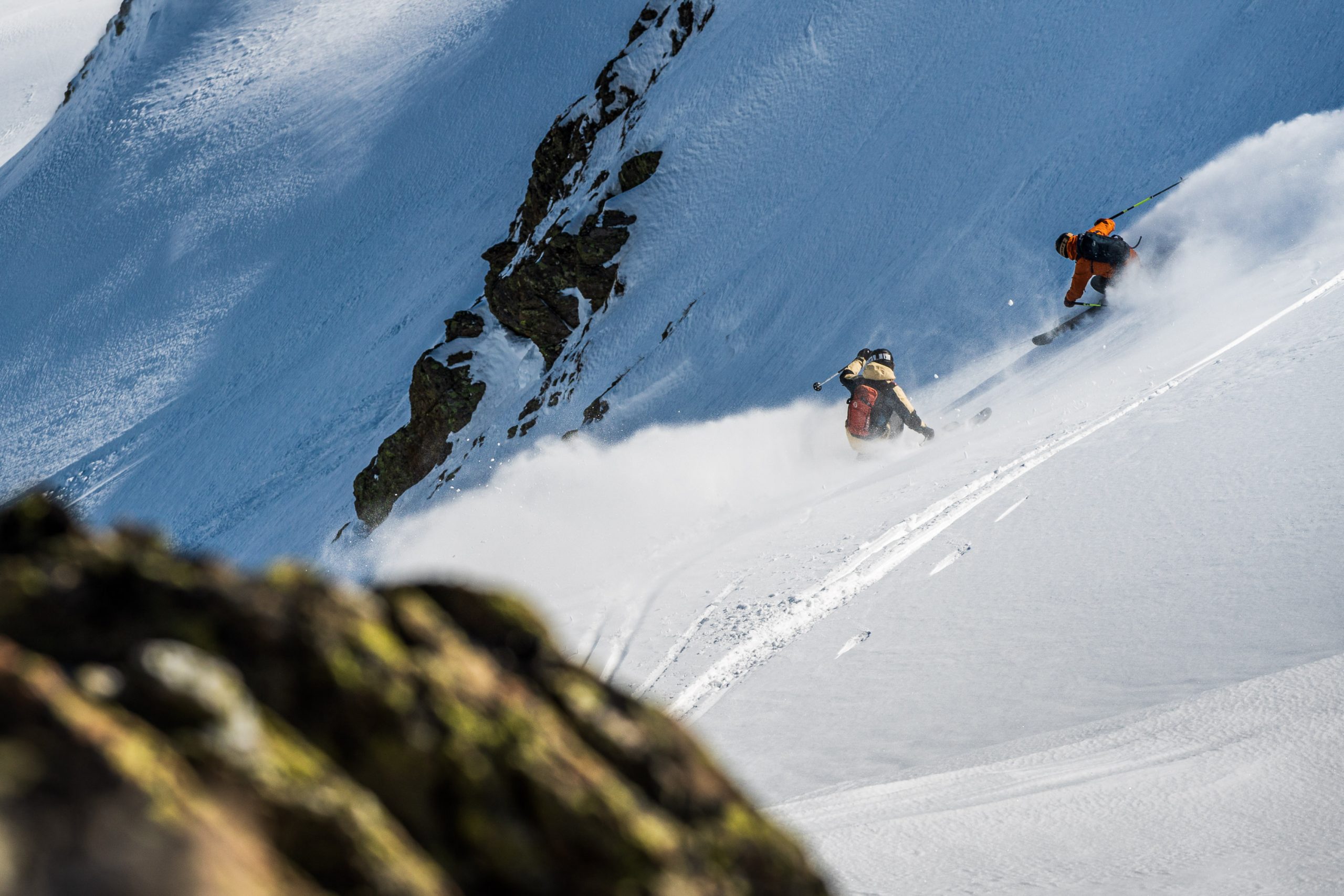
Of course, it helps when your coach can shred as hard as you.
How did your contest career progress after that?
Valentin: I got into skiing 4-star-qualifiers pretty quickly because I had some good results early on. Then I went to Nendaz for the 2-star event where I finished on the podium, which allowed me to enter the qualifier for the 4-star event where I qualified as fifth. In the 4-star contest I crashed, but I still could enter 4-star qualifiers the next season, which was amazing. However, it was also a bit of a shock because people were throwing huge tricks and my trick game wasn’t really existent. I had never skied in the park and had to learn everything basically from scratch. It took me two years to get to a level where I was competitive.
you made it to the FWT this year. How was that?
Valentin: It was a great experience. I just wish I would have been better prepared. Unfortunately I hurt my ankle on the trampoline in late autumn and missed the whole early season. Two weeks before the first comp in Baqueira was the first time that I could ski without pain. It wasn't too bad, but I was still missing a lot of ski days. I guess I was a bit too tentative in my skiing, and after two so-so results in Spain and Andorra, I really needed a good result in Kicking Horse. That event then turned out to be back and forth with the weather and I was a bit unlucky with my run, so I missed the qualification for the finals and next year’s tour. Now I am trying to re-qualify, and I hope that I will be back on the FWT next season and will have a better year.
I had never skied in the park and had to learn everything basically from scratch. It took me two years to get to a level where I was competitive.
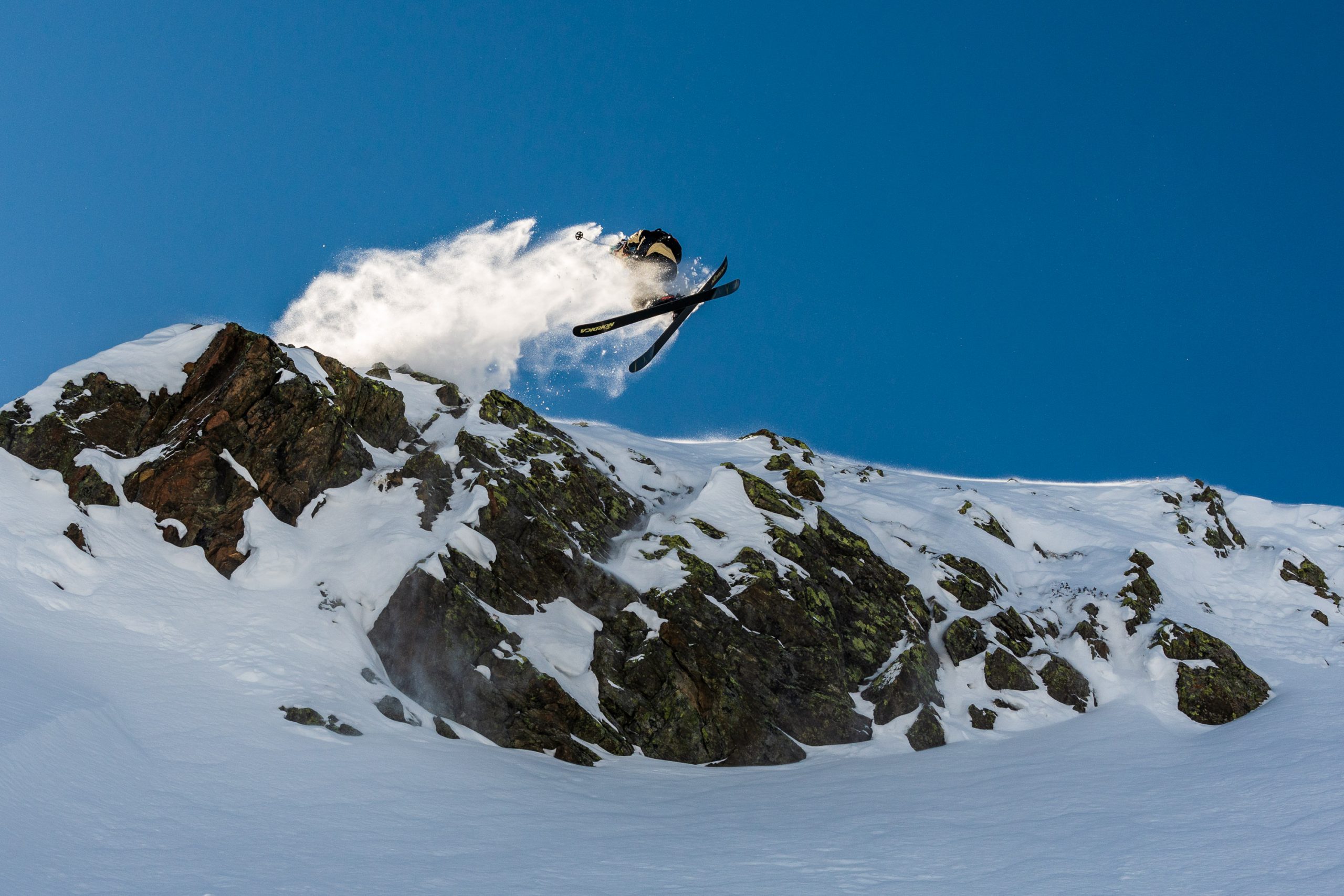
Practice makes perfect: Valentin works out the kinks in his air game.
Well, you're still young and probably have plenty of years in competition ahead of you. On the other hand, we see that competitors on the tour keep getting younger and younger. Stefan, how would you compare your time on the tour to today?
Stefan: Back then we didn’t have anybody to coach us. There weren’t that many people before us, so nobody had that much experience. So it took a lot longer to get to the top. Nowadays it's rather the norm to have a coach to help you when you are young. My team might have been the first team in Austria, but it is far from being the first team overall. There have been freeride coaches in France and overseas for years. That’s what you can see on the tour. Today’s riders are saving a lot of time. It’s not only that someone tells you what line to pick at a competition, but also how to prepare for the season and so on. People are better prepared and are better advised. As a result, they don’t hurt themselves so much, and they know what to do without trial and error. I mean, I didn’t hurt myself back then either, but I was progressing much slower because I wasn't taking on too much risk.
Valentin, what’s your focus for the future?
Valentin: For the moment, my plan is to be a professional freerider for the next few years and also to keep competing on the freeride circuit. I definitely want to spend at least another year on the FWT and eventually make it to the finals someday. However, in case I don’t qualify for the FWT, I'm not sure whether I will purely focus on the FWQ to make it back. I will probably take a chance at contests that fit in my plans, but I also want to do other things like filming and traveling. Most likely, I will also start studying sports management so that I have another foundation for the future. I definitely want to be involved with skiing for a long time, but I know that I won’t be able to compete forever.
It’s not only that someone tells you what line to pick at a competition, but also how to prepare for the season. People are better prepared and better advised.
Obviously, there is much more to being a professional freerider than just competing…
Stefan: It’s for sure different than, let’s say, being an Alpine World Cup skier. In racing you are part of a team and you mostly can focus on skiing. At least, you don’t have to plan your training or your travel to competitions and so on. In freeriding you are your own boss. You need to perform, but you also need to plan your whole season, including the training. At a higher level, you need to hire your own coaches or physiotherapists if you want someone to accompany you at a comp. For juniors who usually compete somewhere that’s not too far away and where there might be several riders from a team at the same comp, it's possible for a team to pay a coach to attend the comps, but even there it needs some funding. Once you make it up the ranks to the 4-star FWQ or even FWT, you are on your own and you better manage it in a professional way if you want to keep going for several years. That’s also something that I had to learn by myself. Nowadays the riders may learn from an experienced coach at a younger age.
Valentin: That’s true. Particularly in respect to sponsors, I didn’t know at all what to do before I met Stefan. He also showed me what is important to keep a good relationship with your sponsors. I mean, it’s not enough to just ski comps. Even if you are good at comps, you still need to communicate with the public and you also need to communicate with your sponsors. I also like to get involved with product development. For example, this year I was testing ski prototypes for Nordica and I am testing a new goggle for Scott that enables you to really quickly and easily change the lens of the goggle with a magnetic system. I find that interesting, not only because it helps you to get products that you really like, but also since you get to know another aspect of the ski industry.
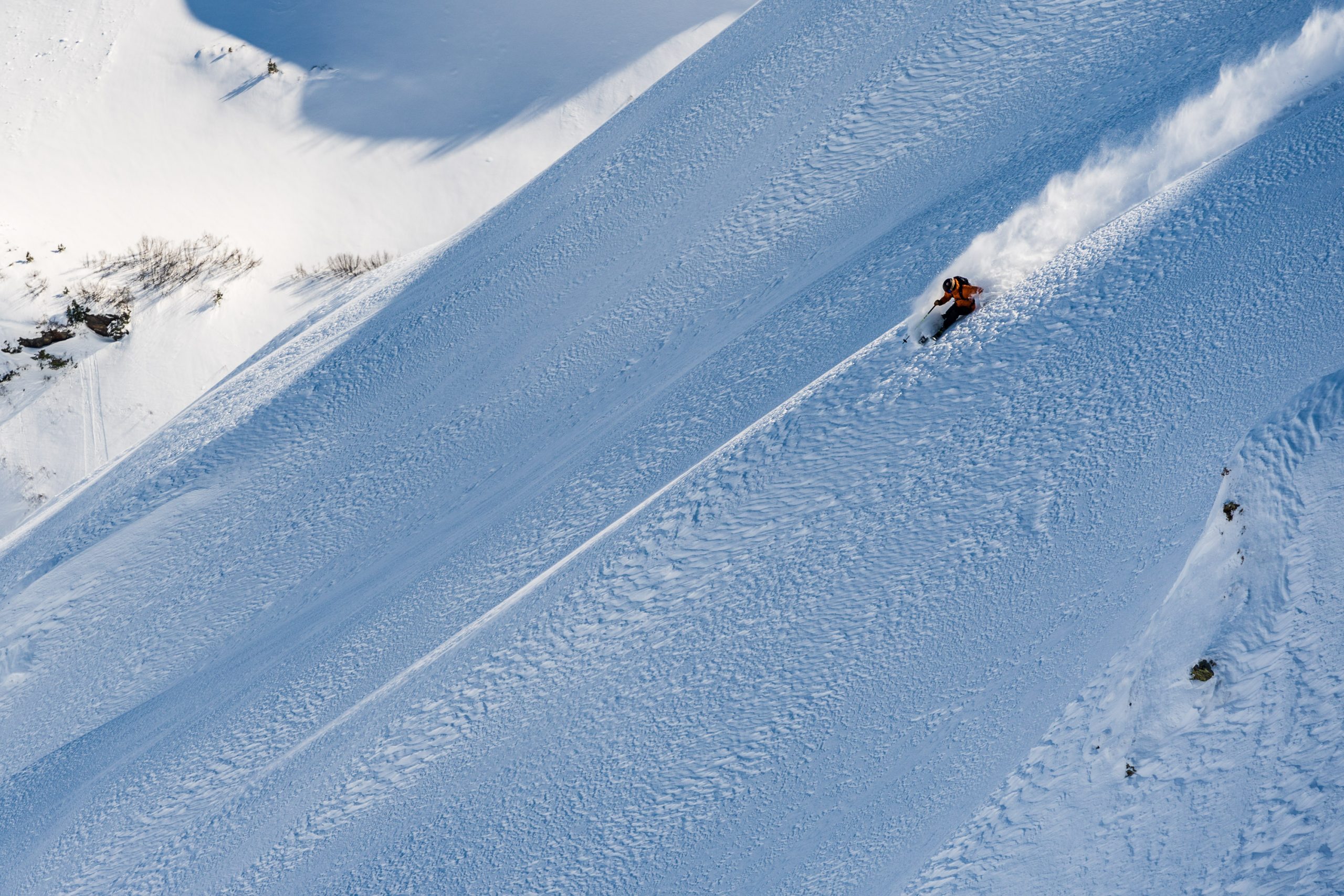
Stefan doesn´t compete anymore, but he still knows his way around a photo turn.
Once you make it up the ranks to the 4-star FWQ or even FWT, you are on your own and you better manage it in a professional way if you want to keep going for several years.
Talking about products, how important is equipment in competitive freeriding?
Stefan: I wouldn’t underestimate the importance. Of course, it’s not like in racing where you need to fine-tune enormously to get a winning setup, but I am sure that you need the right ski for your style of skiing to perform in the best possible way. There are definitely skiers who would perform better if they were skiing on a different ski. I am not saying that the ski of one brand is better than the ski of another brand, but there are differences between different ski models, and not every ski fits every rider. That’s even more the case with boots, actually.
Valentin: I find that in big mountain freeriding it's really important that your equipment simply works because it is a safety factor. It is not so much a factor of competition but a factor of safety, and that can be a decisive element for your mindset. It’s crucial that you can trust your equipment. For example, I once had an incident in New Zealand where I fell off a small cliff. It actually was not really while skiing, but rather while getting off the mountain at one of the club fields. There was almost no snow left and we were working our way down through some bushes and rocks. At some point I got stuck at some branches, and while trying to break free I tumbled and fell down a small cliff, landing right on my head and my back on some rocks. Luckily, I was still wearing my helmet and my back protector, so I wasn’t really hurt. Without my protection gear, I would probably be dead. It’s not something that I would recommend to test for yourself, but since that day I feel quite confident that my protective gear does actually provide real protection, and that certainly helps when you ski steep lines in gnarly terrain fast.
To finish this interview, what’s your expectation for the rest of the season?
Valentin: I am feeling really good right now, much better than at the beginning of the contest season. So I hope that I will manage to requalify for the Freeride World Tour next season. The competition in the FWQ is really tough, though. You need to go all in with every run or you don’t have a chance on a podium spot. But I feel ready for it, and I know that I have what is necessary to be in contention.
Stefan: The competition in freeriding is getting tougher and tougher. There are more skiers than ever who are able to ski crazy lines and perform tricks at the same time. It’s clearly visible from how much change there is in the starting field of the Freeride World Tour from year to year, and to qualify for the FWT is even harder since there are only a few spots available each season. So I am quite happy that I don’t have to expose myself to that pressure anymore. But it is amazing to watch the new guys perform and I am more than happy to have helped Valentin to become one of those guys. I wish everyone good luck and hope that everybody stays healthy.
Valentin and Stefan, thanks for the talk!
